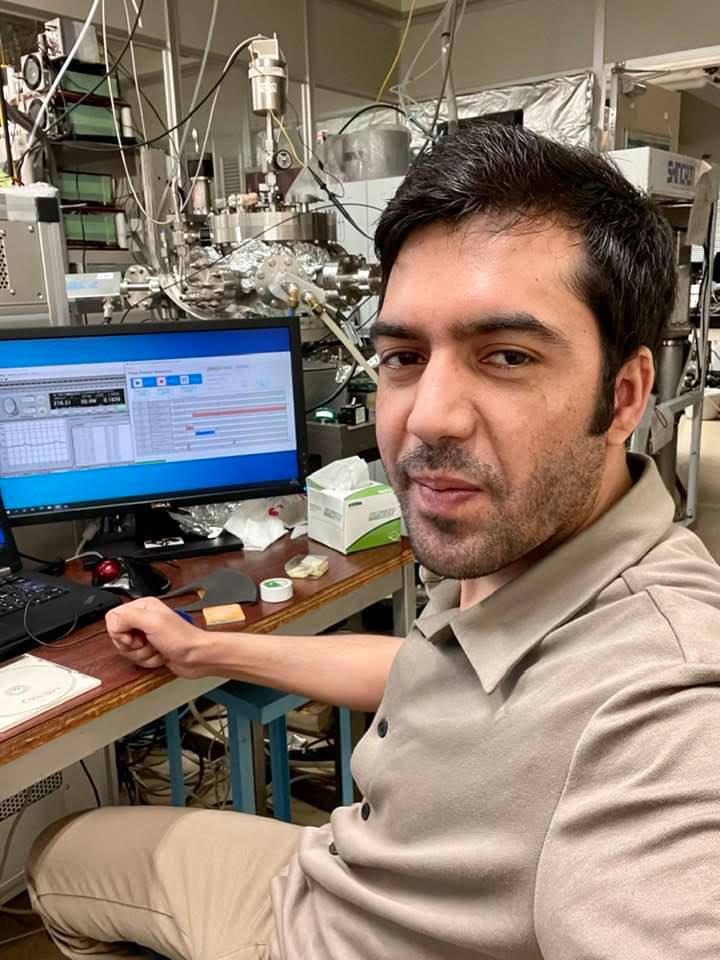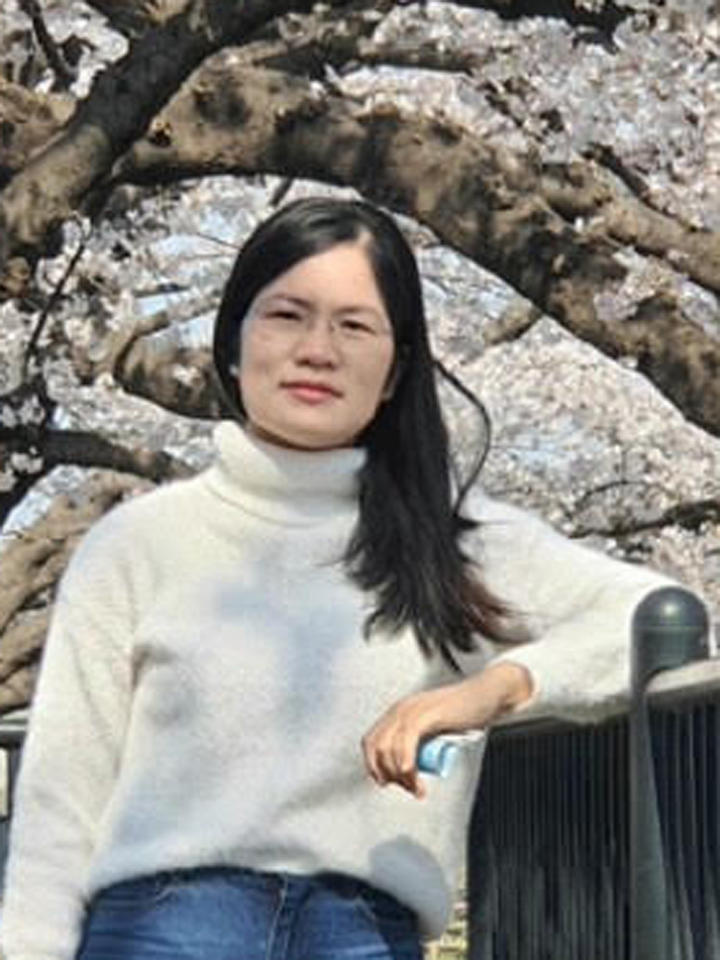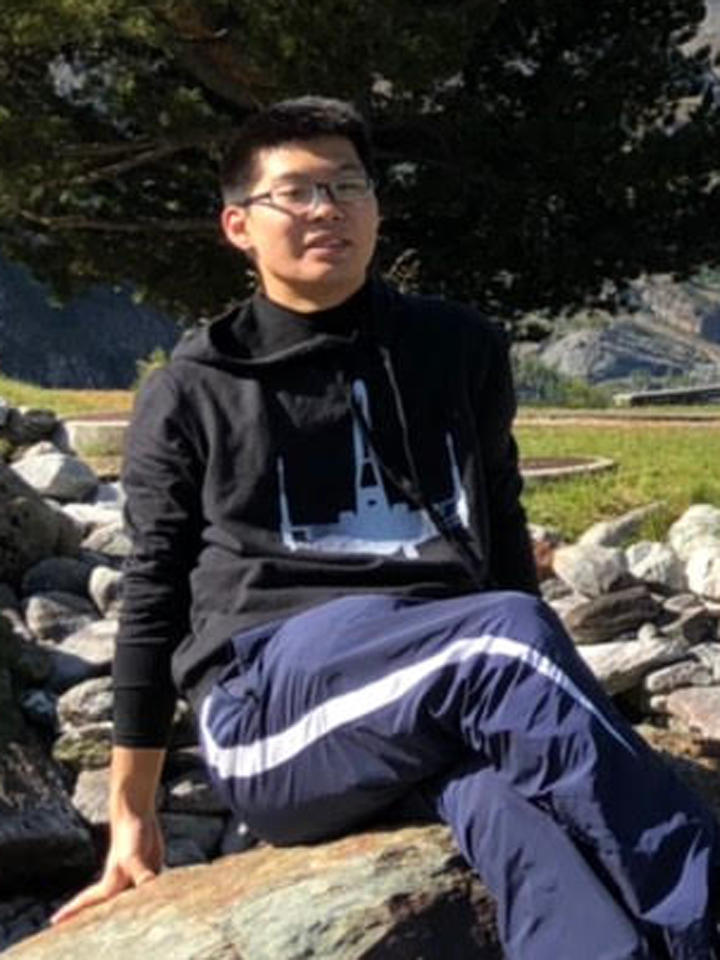IE-IEレター* Letter 3. ~留学生対談~An Ill-Timed Journey to Japan
An Ill-Timed Journey to Japan
IE-IEレター第3号 1通目 UECの4人の学生達によるZoom対談です。厳しい時期に日本で留学生活を送る留学生と帰国した日本人学生による英語の対談をビデオと文章でお楽しみください。




左からアリ・メッディさん、ホァン・ティイェンさん、原木響也さん、ファビアン・シュネークロートさん。
アリ・メッディさん(パスキスタン出身)
Ali Mehdi from Pakistan
Prof. Isshiki’s lab, S-Dept.
MICH Program
ホァン・ティイェンさん(ベトナム出身)
Hoang Thi Yen from Vietnam
Prof. Sun’s lab, M-Dept.
MICH Program
原木響也さん(電通大からスウェーデンへ交換留学)
Hibiya Haraki from Japan
Prof. Yusa’s lab, M-Dept.
Exchange Study-Abroad Program
ファビアン・シュネークロートさん(ドイツ出身)
Fabian Schneekloth from Germany
supervised by Prof. Hirota of J-Dept.
JUSST Program
Although almost subdued by the vaccines and newly developed medicines, COVID-19 has affected and still continues to affect our lives. The international students who succeeded in competitive screening to come to UEC Tokyo (UEC for short hereafter) in 2020 faced an unexpected delay in entering Japan, and when they were finally permitted to enter, they had to endure two weeks of quarantine in a foreign environment. Fortunately, the young students were very courageous and resilient. They survived the ordeal, and soon began to absorb what Japan had in store for them.
Here is a story told by Mr. Fabian Schneekloth, a JUSST*1 International Student from Bremen University in Germany. It centers on two fictitious avatar-like characters, A-san and B-san, representing typical international students who arrived at UEC in the least favorable circumstances. The two were creations based on the conversations shared by the four real students, Ms. Hoang Thi Yen and Mr. Ali Mehdi, from UEC’s MICH*2 International Program for MEXT Scholars, and Mr. Hibiya Haraki, who spent a year in Sweden on UEC’s Exchange Study-Abroad Program with Blekinge Institute of Technology, and Mr. Fabian Schneekloth himself. Parts of their enlightening conversations are presented in the accompanying video clips.
An Ill-Timed Journey to Japan
Coming to Japan in the midst of COVID-19
A-san and B-san came to Japan at about the same time. While A-san came from Europe, B-san came from southeast Asia. When A-san arrived in Japan, he felt very exhausted because his flight took more than 10 hours, while B-san’s flight wasn’t quite as long, and she wasn’t quite as tired. Both just came at a terribly inconvenient time. They had been kept waiting to enter Japan due to the “State of Emergency” issued by the Japanese government.
After a sound sleep on the first day, A-san felt fully recovered from the long flight. The jet lag wore out in the subsequent few days. However, coming to Japan in the middle of this worldwide pandemic meant two weeks of mandatory quarantine. This ordeal took quite a toll on both of them, and especially on A-san. He started to question his decision of coming to Japan since being confined in a small room for two weeks was by no means fun even if his visit to Japan promised to be fruitful in the long run. Well, theoretically.
A-san did his quarantine on the UEC campus. The food and other daily needs were meticulously supplied by the university staff and student assistants without necessitating any direct contact. He was very grateful about the arrangements. The two-week quarantine passed very slowly and ended anticlimactically with no major problems. (On the other hand, B-san had a different arrangement for the quarantine. Read Ms. Hoang Thi Yen’s contributed account in the Letters to the Editor Section.)
But the newly gained freedom was refreshingly sweet. A-san and B-san opted to go to a ramen restaurant to celebrate the occasion. There, a surprise awaited them. They each ordered a small serving of ramen, but it came loaded with a ludicrous mountain of soybean sprouts on the top. No figurative description! As they ate through the soybean sprouts to reach the noodles, they realized their stomachs were already full. Since this ramen was so underwhelming, they decided instead to cook their own national meals to entertain each other.
[video: A True RAMEN story]
The following day, they went to the nearest supermarket to get the ingredients. But here they unwittingly faced the next difficulty. A-san couldn’t even “read” the names of the food, and half of the foodstuff was entirely unknown to him. He was especially worried about the meat as he is Muslim and was unable to eat pork for religious reasons! Thanks to the self-evident images of the animals on food labels, he had no trouble identifying meat. But as a Muslim man, he had to avoid alcohol as well.
[video: Broad-Mindedness toward Religions]
Luckily B-san came to the rescue. She did not speak Japanese but she spoke Mandarin! It meant she could at least read the kanji. She told A-san which kanji represented alcohol. They thought they had solved all the problems. But to their dismay, the supermarket did not carry international ingredients.
They gathered courage and decided to go to a bigger food market. Predictably, they had a bit of searching to do there too, but they found what they needed. The first lesson in a foreign country: Everything is frustration when you can’t rely on your own common sense!
Days went by. B-san was always very helpful. However, A-san didn’t want to rely on B-san all the time. As A-san came to know people around him better, he realized that they were actually ready to help make his everyday life easier. This motivated A-san to study Japanese more enthusiastically than before and integrate into the community. He even found a photo translation app for kanji which accelerated his language learning. In spite of his effort, however, the language barrier still remained imposing.
A-san’s primary motivation for coming to Japan was to experience its culture directly and to get to know people in person, but he never saw anyone speak English in his lab. He wondered if they would understand him if he opted to speak to them in English. He hesitated. Maybe it was because of this that he still hadn’t made any Japanese friends. Moreover, he had a disadvantage; his stay was for only one year, and the time was slipping by, not much time left to master the Japanese language.
[video: Avoid Making an Issue is the Issue]
B-san, on the other hand, was not so worried about the language as her main goal was to get an academic degree and bring the acquired expertise back to her country. She had the advantages of more time and the ability to read kanji. Besides, she was living in a dormitory with Japanese students so that she could learn Japanese in everyday life.
[video: What to Bring Back Home]
A-san, on the other hand, lived in the International House set aside for people like A-san. When A-san told her about his issues, B-san suggested to him that there would be no harm in trying to speak to the people in his lab because many Japanese were actually very open. According to her, their attitude toward A-san had nothing to do with the language. The Japanese are just shy. Their shyness keeps them from initiating conversations, even if they are interested in speaking to A-san. B-san then noted that even if speaking was an issue, writing in English would probably be fine.
[video: How to ATTRACT more International Students]
A-san listened to this advice and summoned all his courage. As he spoke to his lab mates in Japanese first instead of in English, he was surprised at how much he was already able to say in Japanese even though his grammar and vocabulary were insufficient for expressing subtleties. He could communicate, and he realized that was what really mattered, and that was all he needed.
[video: An imperfect English is perfectly OK]
Over the next few months, A-san grew closer and closer to his fellow lab students and even met new people outside of this circle. At social gatherings in the lab, they had good conversations and came to realize they shared a lot of interests. Occasionally, they discovered intriguing quirks about their cultures and shared laughs. “After all, the Japanese are not as different from me as they appeared to be in the beginning”, thought A-san.
These new friends took A-san and B-san to various festivals and showed them a very lively part of Japanese culture which they would have easily missed. And B-san considered the stoic and disciplined part of the Japanese character to be a nice change of pace.
Over the remaining months, A-san learned Japanese faster than he had imagined. He also learned to love sushi even though eating raw fish had not been to his liking before. He sometimes cooked food from his own country too, and reconnected briefly with home, rediscovering his own cultural heritage. Of course, there’s no denying that it is best to eat Japanese food while in Japan except, he thought, for the ramen with a mountain of soybean sprouts on the top.
The time to leave Japan came sooner than A-san had imagined. While he managed to fulfill his goal in terms of research, there were still so many things he wished to experience, so many places he dreamed of going to, all of which had been sadly denied to him due to the pandemic. He knew he would definitely come back to Japan to do all the things he had wanted to do.
Not only that, A-san and B-san promised to visit each other in their native countries in the future. They realized their encounter in Japan taught them how fascinating the world was and how friendship could grow despite, or rather because of, the seemingly bad circumstance. So, in the end A-san realized that he had gotten more out of his time in Japan than he had hoped for. The experience had been satisfying and successful.
[video: Finale]
*1 JUSST is an acronym for Japanese University Studies in Science & Technology.
*2 MICH is an acronym for Multifaceted International Collaboration Hubs.
原木さんのブレーキンゲ工科大学(スウェーデン)留学報告はこちらをご覧ください。
作成日:2021年11月29日 / 更新日:2025年6月25日






